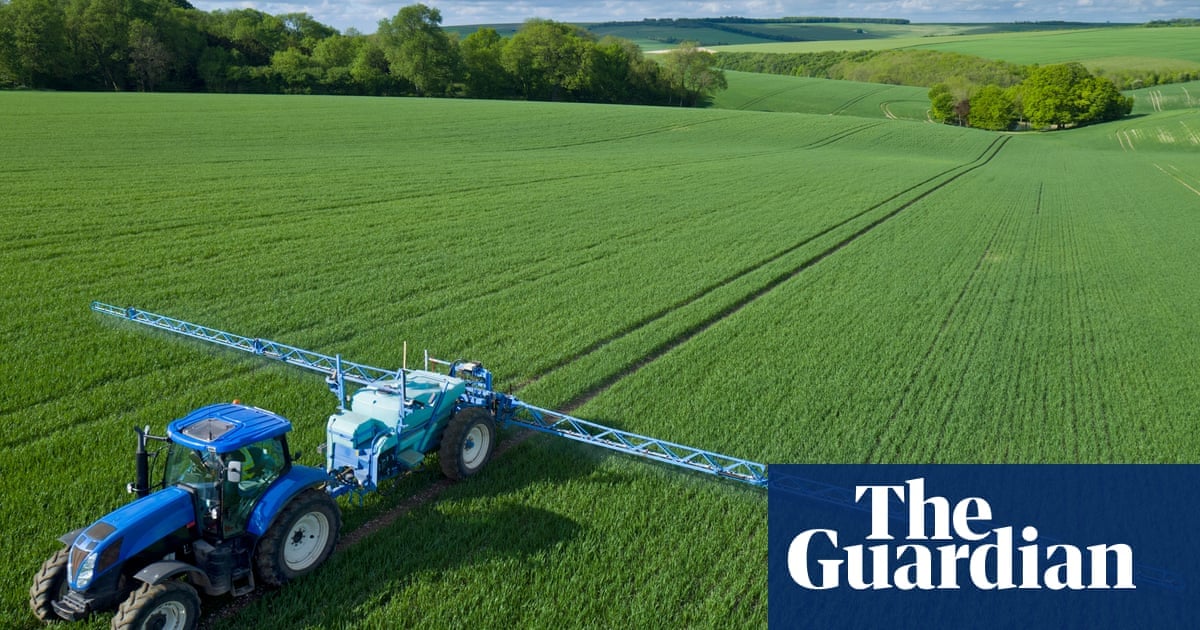Changes to regulations in Great Britain mean more than 100 items are now allowed to carry more pesticides when sold to the public, ranging from potatoes to onions, grapes to avocados, and coffee to rice.
For tea, the maximum residue level (MRL) was increased by 4,000 times for both the insecticide chlorantraniliprole and the fungicide boscalid. For the controversial weedkiller glyphosate, classed as a “probable human carcinogen” by the World Health Organization (WHO), the MRL for beans was raised by 7.5 times.
The purpose of the pesticide MRL regime is to protect public health, wildlife and the natural environment. Campaigners said the list of pesticides included reproductive toxins and carcinogens and that the weaker MRLs reduced protections for consumers in Great Britain. Northern Ireland has retained the EU MRLs.
Freedom!!
It must feel glorious.I dont know what is revealed there, it was just a question when they will increase it as the (non existing anymore) regulations regulated the use.
You seem to misunderstand how it works.
EU doesn’t make laws, the EU regulations were written into UK law, just as with any other member country. So the regulation most definitely still existed for UK after Brexit, and had to be removed from the UK law to achieve this “progress of greater freedom”.
So what is revealed is that UK ACTUALLY changed it for the worse, just as many predicted they would.I dont get what you are saying tbh i never said EU made the laws in there, you just repeat what i (indirect) told. That UK no longer have / follow those rules / regulations / recommendations from the EU.
The point was that this was a change that required an explicit act by parliament to happen, i.e. they made a concious choice to increase the limits. The laws did not automatically revert/change when brexit was decided.
So the timeline is: UK as part of EU adopts the regulation into national law. UK leaves EU, national law is unchanged by this (so regulation persists). UK makes a new national law changing the amount of pesticide residue allowed to be higher.
Am on mobile please excuse typos
Just as we said would happen, but thanks to poor education and prime propaganda, the general public seemed to care more about “bendy bananas” than they did about the levels of poison allowed in our food (helped, of course, by the media massively playing it down, just like they did the so called “Brexit bonfire”).
Wasn’t that part of the point of Brexit?
Freedom tastes of glyphosate.
The WHO considers “red meat” to be a “probable carcinogen”.
The question is: are these new levels still considered “safe”?
The WHO considers “red meat” to be a “probable carcinogen”.
Yes, because of “science”.
Yes. Which is why it’s very misleading to say that glyphosate is “classed as a ‘probable human carcinogen’” without any context.
Most people will assume that means it’s more dangerous than it is.
Like - if you phrased it as “glyphosate is about as carcinogenic as a steak” then it rather loses its punch as a propaganda statement.
“Probable carcinogen” doesn’t mean “same risk as any other probable carcinogen”.
Again - my point being made. Why even mention it if not to poison the well?





